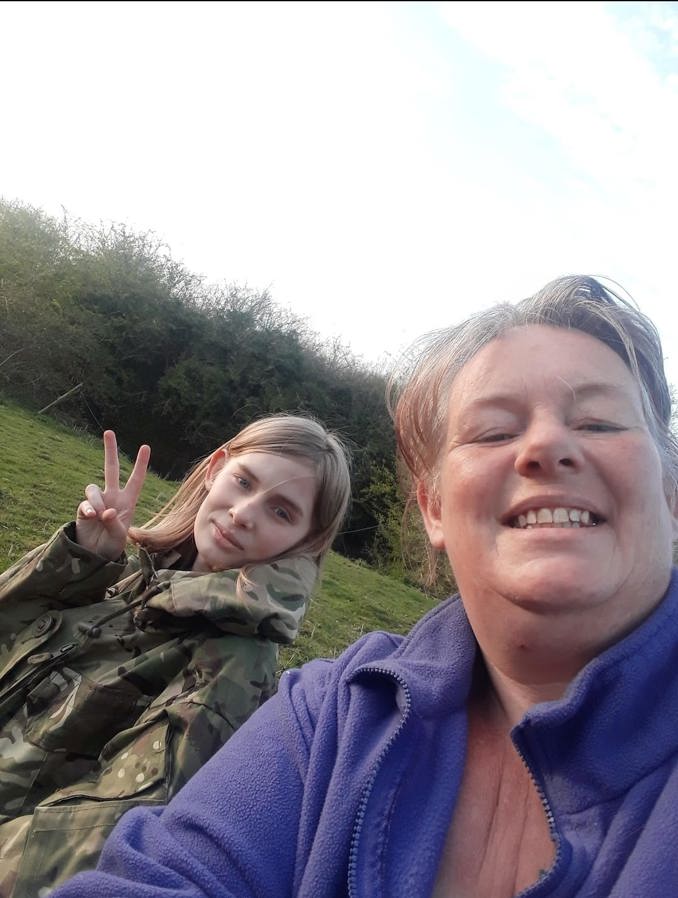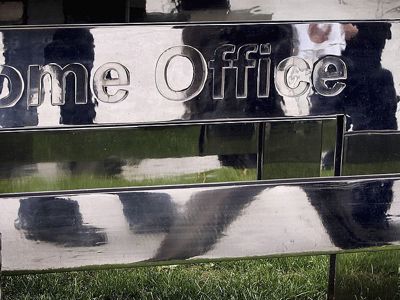Inquest into the death of 16-year-old Rhianan Rudd finds there were missed opportunities by several of the agencies responsible for safeguarding her before her death
An inquest into the death of 16-year-old Rhianan Rudd, the youngest female ever to be charged with terror offences in the UK, has found there were missed opportunities by Counter Terrorism Police, Prevent, Derbyshire County Council and a number of mental health bodies in the period leading up to her death
Posted on 10 June 2025
Rhianan, from Bolsover, was found dead at a children’s home in Nottinghamshire on 19 May 2022 having taken her own life. She had been charged with terrorism following her referral to the Prevent programme over concerns about her contact with extremist individuals in the U.S. and a subsequent counter terrorism police investigation.
The inquest, which was heard over 16 days between 27 February and 21 March, concluded on Monday 9 June 2025 at Chesterfield Coroner’s Court. Evidence was heard from all the agencies involved in the circumstances leading up to Rhianan’s death, including MI5, the Crown Prosecution Service, counter terrorism police, social services, the NHS Trusts responsible for her mental health care and the children’s home where Rhianan was living.

In her conclusion, the Chief Coroner, Her Honour Judge Alexia Durran, found that:
- There was a potential systemic failure on the part of Counter Terrorism Police and Derbyshire County Council to refer Rhianan to the National Referral Mechanism, the body responsible for identifying potential victims of modern slavery, at an earlier date, despite having all the information they needed to do so and both organisations being first responders.
- Derbyshire County Council should have referred Rhianan for mental health support at an earlier stage and the opportunity to arrange therapy for her sooner was missed. This referral should not have been delayed.
- Rhianan had no direct mental health support from Nottinghamshire Child and Adolescent Mental Health Services (CAMHS) during a particularly challenging and difficult period which included both the discontinuation of the criminal prosecution and her engagement with Prevent. The coroner found the lack of input from Nottinghamshire CAMHS to be a missed opportunity which left Rhianan without any input from mental health services from May 2021- May 2022.
- No positive impact on Rhianan could be found from the input from specialist Forensic Mental Health Services (FCAMHS), the body responsible for the mental health care of young people in the criminal justice system. FCAMHS did not provide a plan for her care or help to coordinate multi agency support and the involvement of FCAMHS may even have had a detrimental impact by masking the fact that there were no professionals working directly with Rhianan. The misapprehension from various professionals that Rhianan was receiving significant support when in fact she had very little direct input from professionals was a recurring theme.
- A change in the focus of Rhianan’s final session with Prevent meant that it likely resulted in a more challenging exploration of topics than was desirable. This change was not discussed with other professionals involved in supporting Rhianan who had previously agreed to pause the more probing sessions. At this time, Rhianan was about to sit her GCSEs, there was no CAMHS involvement, and there were recent concerns about her mental health. The coroner found that this change was not appropriate.
Although the chief coroner ruled that there was not enough evidence to conclude that these missed opportunities contributed to Rhianan’s death, she did find that they were a concern.

Recording a narrative conclusion, the chief coroner found that there was not enough evidence to show that Rhianan intended to take her life.
Rhianan’s mother Emily Carter was represented at the inquest by Leigh Day human rights team partner Anna Moore who has instructed Jesse Nicholls of Matrix Chambers and Ciara Bartlam of Garden Court North.
Following the inquest, Rhianan’s mother Emily Carter said:
“My beautiful daughter Rhianan was loving, kind-hearted and clever. She loved nothing more than to laugh and brought so much joy to our family and those around her.
“Losing Rhianan as we did was the most painful and traumatic experience any family could have to go through. To hear at her inquest today that she was let down by the police, the Prevent anti-terror programme, Derbyshire County Council and the mental health bodies only increases our anguish.
“Rhianan’s young age, autism and other vulnerabilities made her an easy target for those who sought to groom and exploit her for their own ends. These people filled her head with ideas that were not her own and caused her to act in ways which would never otherwise have occurred to her.
After I raised concerns about her behaviour to the authorities, instead of being treated as a highly vulnerable victim of exploitation, Rhianan was treated as a terror suspect and a criminal.
“The chief coroner has found that Rhianan was denied access to services which should have supported and protected her and, I believe, could have saved her life.
“Looking at the number of missed opportunities recognised by the coroner, it’s hard to see how they cannot have had an impact on Rhianan’s state of mind.
“I believe there were many people in positions of authority who could and should have realised mistakes were being made in the way Rhianan was treated and that opportunities to support her were being missed. Throughout this time, I saw first-hand the impact these failings had on my daughter’s mental health in the period before she took her life.”
“Whilst nothing can ever bring Rhianan back, I urge all the authorities that came into contact with her to learn from what happened so that no other family has to experience the pain we have endured. If this truly happens, my hope is that positive change can come from this tragedy and can be a lasting legacy to my beautiful daughter Rhianan, who I will always love and cherish.”
The family’s solicitor, Leigh Day partner Anna Moore said:
“It is significant that the coroner has recognised there were a number of missed opportunities by several of the agencies which came into contact with Rhianan before her death, including Counter Terrorism Police, Prevent, Derbyshire County Council and a number of the mental bodies.
“These include the failure to refer Rhianan to the National Referral Mechanism to recognise her as a victim of exploitation at an earlier date; the failure to secure and provide her with adequate mental health support; and the impact of the change of focus of Prevent.
“Rhianan was described by some of those involved with her as the most vulnerable child they had ever come across; many of the agencies which dealt with her over a period of many months had legal obligations to safeguard her, and yet she was still let down.
“When Rhianan’s mother turned to the Prevent programme for help, she had no idea this is how things would end. Instead of being treated as a victim of grooming and exploitation Rhianan was criminalised. This in turn meant she was removed from her family home and further failings meant she was denied the specialist mental health support she so desperately needed."
The Chief Coroner also found that Prevent officers failed to consider their impact on Rhianan, did not consult with other professionals, and the Prevent intervention immediately before Rhianan's death was not appropriate.
“This has been an exceptionally gruelling process for Rhianan’s family, who want to ensure that children who are victims of online grooming and exploitation are recognised as such and given the appropriate support, rather than being dragged through the criminal process.
“The findings today confirm that the key protections for a vulnerable child were denied to Rhianan.” I sincerely hope lessons are learnt by all those involved so that no other family has to endure the trauma of losing a loved one in this way.”

Human rights
If you believe your human rights have been denied our human rights and civil liberties team is one of the leading teams of practitioners in this specialist area in the country.

Home Office and police not acting to identify potential harms of Prevent programme, including for autistic people, says Rights & Security International
Rights & Security International (RSI) has written to the Home Secretary and the Police Commissioner for the Metropolitan Police about concerns it has after examining newly obtained data and documents on the government’s Prevent and Channel programmes – including on how the programmes impact autistic people.


